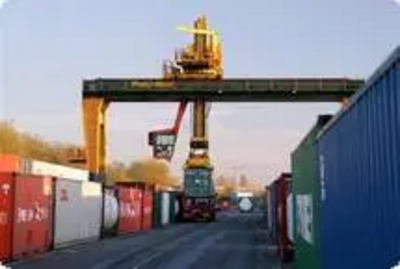Railfreight Continues to take Lorries off the Road as Freightliner Ltd Reports Increased Business

Freightliner Ltd this week (Wednesday 26th September) achieved a new record with 481 containers handled daily through Tilbury.
Freightliner Ltd, the UK's largest intermodal rail freight company owns and operates its rail freight facility at the London port. Freightliner operates 16 daily import/export services from the port to eight destinations across the UK, six of which are inland terminals owned and operated by the company.
Tilbury is one of the five key deep sea ports served by Freightliner Ltd which moves 80% of all railborne maritime containers that enter the UK to 14 locations serving all the major UK conurbations. Freightliner supports its rail services through the use of its in-house road services (FRS) to provide end user delivery for the container's final leg of its journey.
Managing Director Adam Cunliffe said; "Since 2009, year on year we have seen our volumes at Tilbury steadily increase. Improved operations, the support of container transfer from Forth Ports and the launch of our new container handling IT system, Spinnaker, last year have helped us to achieve our record throughput".
Hertfordshire County Councillor Nick Hollinghurst commented, "The continued development of railfreight to carry containers is most welcome and I applaud this success by Freightliner Ltd. It reduces congestion and lorry movements in counties like Essex, Hertfordshire and Cambridgeshire. It's better for Hertfordshire, better for the East of England Region - and better for the planet."
Based on a Press Release from Freightliner Ltd
